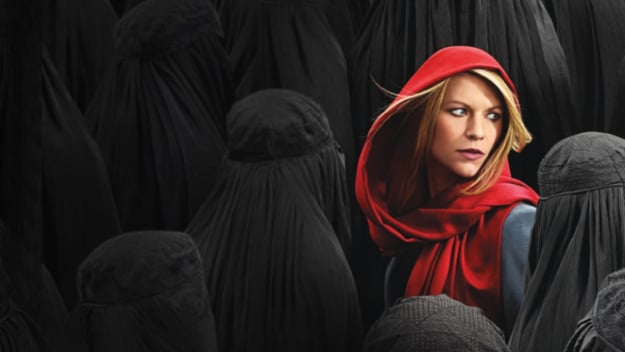'Riz Test' launched to evaluate Muslim representation in films and TV
Shafiuddean Choudry, Dr Sadia Habib hope to start conversation about stereotyping, prejudice

PHOTO: BBC
Islam and Europe: ‘We’re Muslim, get over it’
Intentional or not, Muslim representation in some films and TV shows is usually very appalling. For this reason, Shaf Choudry and Dr Sadia Habib recently created and conducted the 'Riz Test' based on one of Hollywood's most acclaimed Muslim celebrities, Riz Ahmed.
 PHOTO: FORTUNE MAGAZINE
PHOTO: FORTUNE MAGAZINEThe 'Riz Test' is defined by a five-point criteria. Speaking about the test, Choudry and Habib explained, "If the film stars at least one character who is identifiable Muslim - by ethnicity, language or clothing - is the character talking about the victim or executioner of terrorism? Or often irrationally angry? Is the character superstitious or presented as a threat to the Western way of life? If the character is a male, is he shown as a misogynist? Or if it's a female, is she portrayed as an oppressed character as compared to the male counterparts?"
They stated that if the answer to any of the said questions is a yes, then the film or TV show has failed the test.
 PHOTO: DIGITAL SPY
PHOTO: DIGITAL SPYThe researcher duo added that the test has been designed for audiences to critique the "thoughtless, malicious and stereotypical" representations of Muslims in films and TV shows by questioning the portrayal of the community. They continued, "Taking inspiration from Riz Ahmed’s speech on representation and the Bechdel and Duvernay tests, the Riz Test hopes to start a conversation about the need for a concerted effort to have fair representation of Muslims in film and television."
https://youtu.be/gVQrMf2DbZY
The creators mentioned that Muslim men are often depicted as terrorists or cruel sexists who like bolstering patriarchy. On the other hand, Muslim women are usually either shown as harem girls and belly dancers or veiled and oppressed.
Muslims shown in films and TV as dangerous people or as threats to the Western lifestyle has led to alarming consequences on how the rest of the society perceives them. Such racist typecasts often result in incidents of verbal or physical abuse which seem to be occurring all across the world.
 PHOTO: PUBLIC RADIO INTERNATIONAL
PHOTO: PUBLIC RADIO INTERNATIONALAuthor Jack G Shaheen critiqued thousands of Hollywood films for encouraging a propaganda of prejudice against the community in his book Reel Bad Arabs: How Hollywood Vilifies a People. Likewise, German-Palestinian film-maker Lexi Alexander also criticised BBC's latest drama Bodyguard. She said, "The white saviour not only saved the whole train from exploding, he also saved the Muslim woman from her 'abusive' Muslim husband."
 PHOTO: THE GUARDIAN
PHOTO: THE GUARDIANAnother film that fails the Riz Test is the latest release Sicario: Day of the Soldado in which the opening scene wastes no time in showing Muslims as suicide bombers. But the crime thriller is not the only genre guilty of misrepresentation. Even sci-fi, fantasy films - where practically anything is possible - such as Iron Man, X-Men Apocalypse have failed the test. Much lauded superhero film Black Panther did not manage to pass either.
How two Muslim women are offering resistance to Trump’s era with style
Choudry and Habib concluded stating that while films and TV shows depict Muslims as "monsters", the impact left on young film fans - hailing from diverse cultural, ethnic and religious backgrounds - can be disastrous, often leading to bullying or racism.
Have something to add to the story? Share in the comments below.



















COMMENTS
Comments are moderated and generally will be posted if they are on-topic and not abusive.
For more information, please see our Comments FAQ